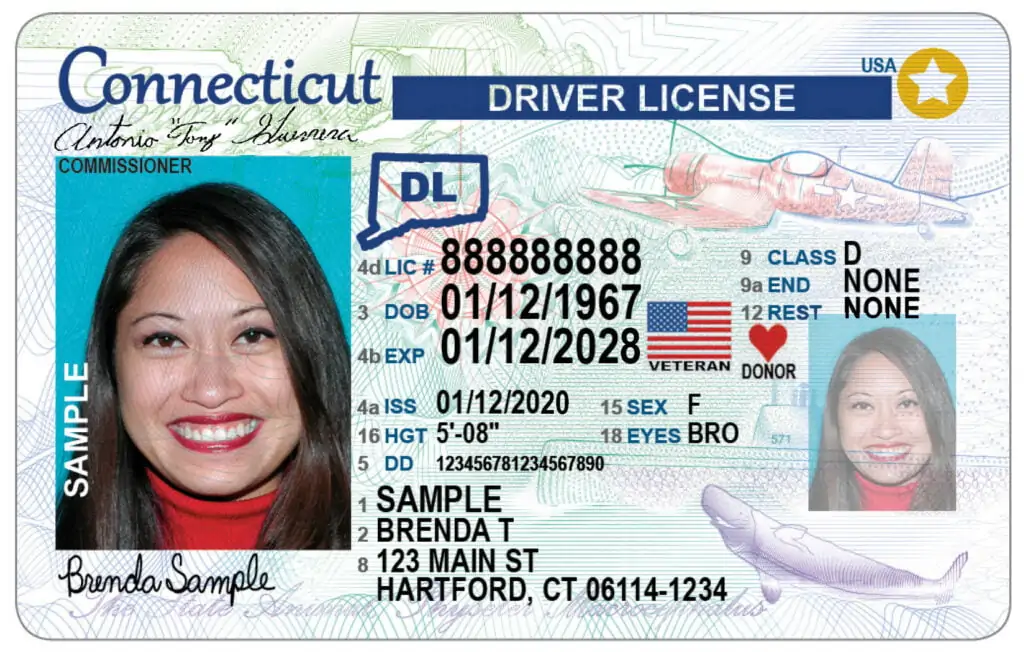Connecticut
ID Scanning Laws
In Connecticut, a retailer, including hotels, is allowed to retain and use information obtained from IDs for the following purposes:
- Verifying a customer’s age
- Establishing a customer’s identity
- Confirming a customer’s license status to operate a vehicle
- Disclosures to Other Businesses and Entities
- Verifying a check payment or evaluating creditworthiness
- Detecting or reducing the risk of fraud, abuse, identity theft, or other crimes
- Collection activities
- Confirming that a customer has met the motor vehicle financial responsibility requirements




Connecticut State Legislature
ID Scanning Resources
The Legal Framework
Connecticut ID Scanning Laws and Regulations
Connecticut ID Scanning Laws
Connecticut law allows businesses, including hotels, to scan IDs under certain conditions. The law is primarily governed by the Connecticut General Statutes (CGS) § 42-471, which was last revised in 2012. The statute provides a comprehensive framework for the collection, retention, and disclosure of personal information obtained from an ID scan.
Purpose of ID Scanning
In the context of the hotel industry, ID scanning serves several important purposes:
Verifying a customer’s age: This is particularly relevant in situations where age restrictions apply, such as the provision of certain services or access to specific facilities within the hotel.
Establishing a customer’s identity: This is a standard procedure during check-in to ensure the person booking the room is the one checking in.
Confirming a customer’s license status to operate a vehicle: This is applicable in scenarios where the hotel provides valet services or car rentals.
Disclosures to Other Businesses and Entities
Connecticut law also allows for the disclosure of information obtained from ID scans to other businesses and entities for specific purposes. These include:
Verifying a check payment or evaluating creditworthiness: This is often necessary when a customer opts to pay by check or when the hotel needs to assess the credit risk associated with a customer.
Detecting or reducing the risk of fraud, abuse, identity theft, or other crimes: This is crucial for the hotel’s security and the safety of its guests.
Collection activities: This is relevant when a customer has outstanding payments.
Confirming that a customer has met the motor vehicle financial responsibility requirements: This is necessary when the hotel provides valet services or car rentals.
The law also permits the disclosure of such information to certain entities, including the Department of Transportation, insurance licensees, notaries, financial institutions (if permitted by federal law), and law enforcement agencies.
Detailed Provisions of the Law
The Connecticut General Statutes (CGS) § 42-471 provides detailed provisions on the collection, retention, and disclosure of personal information obtained from an ID scan. Here are the key points:
Collection of Personal Information (CGS § 42-471(a)): The law allows businesses to collect personal information by scanning an ID card only for the purposes mentioned above.
Retention and Safeguarding of Personal Information (CGS § 42-471(b)): Businesses must store the collected information securely and protect it from breaches. They must also destroy the information within a reasonable time after it is no longer needed for the purposes for which it was collected.
Disclosure of Personal Information (CGS § 42-471(c)): Businesses may disclose the collected information to other businesses or entities only for the purposes mentioned above. Any other disclosure is prohibited unless the customer explicitly consents to it.
Penalties for Violations (CGS § 42-471(d)): Any business that violates these provisions may be fined up to $500 for each violation.
Please note that this information is intended to provide a general overview and does not constitute legal advice. Always consult with a legal professional for advice specific to your situation.
Connecticut Anti-Trafficking Network
Our Fight Against Human Trafficking



Knowledge Base
Frequently Asked Questions
Yes, hotels in Connecticut can scan IDs for specific purposes, such as verifying a customer's age, establishing a customer's identity, and confirming a customer's license status to operate a vehicle. Guest Ban ID Scanning is designed to comply with state collections and retention laws.
Hotels can use the information for verifying check payments, evaluating creditworthiness, detecting or reducing the risk of fraud, abuse, identity theft, or other crimes, collection activities, and confirming that a customer has met the motor vehicle financial responsibility requirements.
Yes, hotels can disclose the information to other businesses for specific purposes and to certain entities, including the Department of Transportation, insurance licensees, notaries, financial institutions (if permitted by federal law), and law enforcement agencies.
Any business that violates the provisions of the Connecticut General Statutes (CGS) § 42-471 may be fined up to $500 for each violation.
Yes, according to Connecticut General Statutes (CGS) § 42-471(b), businesses, including hotels, must store the collected information securely and protect it from breaches. They are also required to destroy the information within a reasonable time after it is no longer needed for the purposes for which it was collected.
The law does not explicitly address this scenario. However, businesses generally have the right to refuse service, provided they do not do so in a manner that discriminates based on race, color, religion, sex, or national origin. It is advisable for hotels to have clear policies in place regarding ID scanning and to communicate these policies to customers. As always, specific legal questions should be directed to a legal professional.
